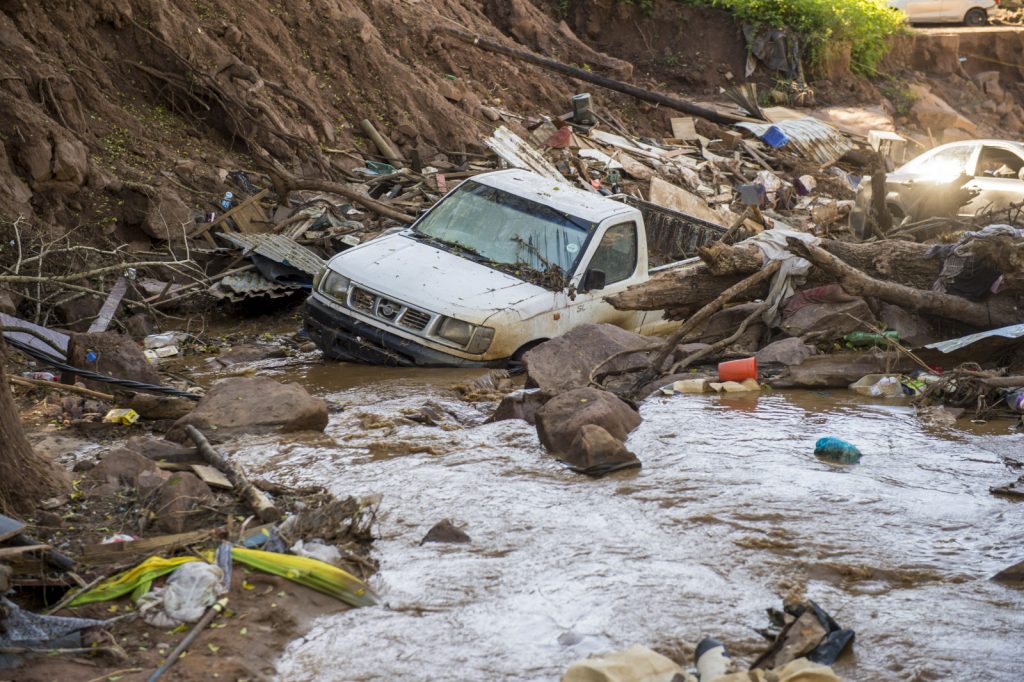“This area of Turkey is prone to earthquakes as it lies at the intersection of three of the tectonic plates that make up the Earth’s crust: the Anatolian, Arabian and African plates." (Photo by Burak Kara/Getty Images)
I’ve been asked to do a weekly column for my section. For my first one, I battled to find a topic. How can I write something meaningful? Climate and environment is such a massive section and there’s so much to tackle. I could write about Eskom, water issues, coal, animals, the exotic pet trade or a myriad other issues. I also wondered why people would want to read what I, a journalist, has to say when there are real experts in these fields.
So, with that in mind, I decided that for the first column it was important to shed light on a topical issue.
By now we’ve all seen footage of the devastating earthquakes that shattered Türkiye and Syria. The death toll is almost at 19 000 after a magnitude 7.8 earthquake hit the region. A second 7.5 magnitude earthquake hit central Türkiye shortly afterwards. Buildings collapsed and lives were lost. Gas lines caught alight, people are still trapped under rubble and there are bone-chilling images of children trapped in the wreckage caused by the quakes.
A seismologist writing for The Conversation explained that the part of Türkiye is susceptible to earthquakes.
“This area of Turkey is prone to earthquakes as it lies at the intersection of three of the tectonic plates that make up the Earth’s crust: the Anatolian, Arabian and African plates. The movement of the tectonic plates builds up pressure on fault zones at their boundaries. It is the sudden release of this pressure that causes earthquakes and ground shaking.”
We feel helpless as they reel from the devastation caused by the earthquakes
It is incredibly difficult to predict these things but could there have been better preparation? Should buildings have been built to withstand such shocks, especially in a region where earthquakes are frequent. Mark Quigley, an associate professor of earthquake science, wrote: “Many of the collapsed buildings appear to have been built from concrete without adequate seismic reinforcement.”
He further noted how “there are well-known problems in Turkey and elsewhere with ensuring safe building construction and adherence to seismic building codes. Similar building collapses have been seen in past earthquakes in Turkey.”
After an earthquake in 2011, poor construction was blamed for the death toll. Since then, Türkiye has set out new regulations to deal with quakes. During the rebuilding process, seismic activity must be kept in mind.
This is not a dig at Turkish authorities, rather it should serve as a wake-up call, globally, as we face a changing climate. Isn’t it better to be prepared for such disasters than to be scurrying to hasten rescue efforts after an incident?
 Water, water everywhere: Flood damage to a house in KwaZulu-Natal earlier this year. Photo: Delwyn Verasamy
Water, water everywhere: Flood damage to a house in KwaZulu-Natal earlier this year. Photo: Delwyn Verasamy
It feels like African countries, in particular, should take heed. We are set to face the worst effects of climate change, sea-level rise, coastal erosion, floods, drought, food insecurity and severe weather patterns.
Before these hit — they already are — might there be time to safeguard our communities and take precautions against such catastrophes?
Here in South Africa, we know earthquakes are unlikely but that’s not to say it is impossible. In 1969, the country experienced its largest one, in Tulbagh in the Western Cape. Several people lost their lives. There has been some recent seismic activity in the Western Cape. This might be a good time to remember that there is a nuclear power plant in the region.
So, without being alarmist, I think it is a crucial time to remember that we are by no means indestructible. Raymond Durrheim at the Wits School of Geosciences warns that this is not something to take lightly — there’s no guarantee it won’t happen in South Africa. Even if it’s not an earthquake, we need to be better prepared. Look at the recent floods in KwaZulu-Natal and Johannesburg and the 2018 drought in Cape Town.
The damage the floods wrought in KZN, and the lives lost, was horrible. For a region that regularly experiences floods, it could have been much better prepared. It needs to be much better prepared. We need to mitigate against the extreme weather patterns that are set to come our way. The next time it happens, will we lament the lives lost or will we laud the fact that we’ve taken steps to ensure the most vulnerable are safe?
We are not immune to disasters; our leaders must be proactive rather than reactive. Our climate is changing, not for the better, and one thing that is certain is that these impacts will be hugely unequal. The vulnerable feel them more. Whether it’s load-shedding or floods, the poor suffer more. We need to ensure that our most vulnerable people are secure in the face of catastrophic events.
Our hearts bleed for the people of Türkiye and Syria. We feel helpless as they reel from the devastation caused by the earthquakes. We hope it can be a lesson for our leaders that preparing for disasters is much better than dealing with them after the event.
Those of us feeling helpless about the situation, can donate to Gift of the Givers, Islamic Relief, Save the Children and Doctors Without Borders. The Turkish embassy also has released a list of items needed and drop-off zones.